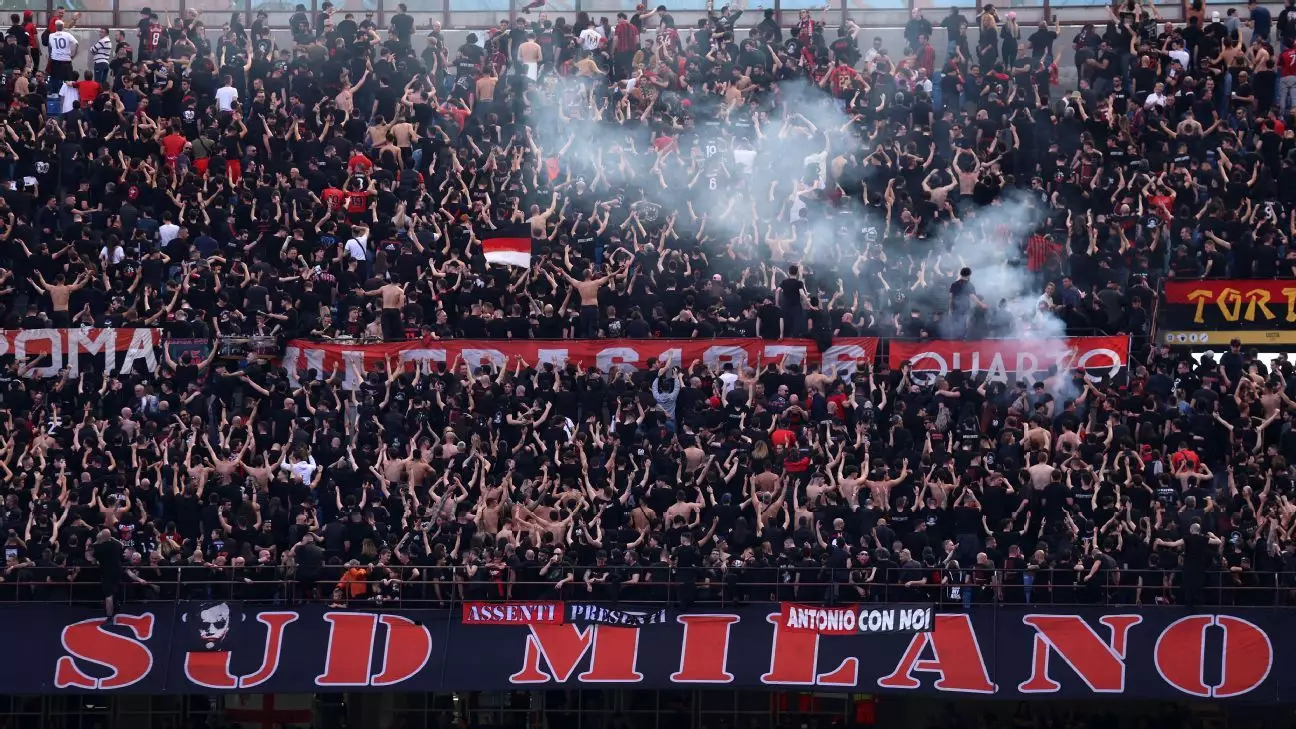The recent arrests made by Italian authorities have further illuminated an alarming truth: organized crime is not just lurking in the shadows of society; it is embedding itself in the very fabric of sporting culture. A significant bust involving the arrests of 19 individuals associated with the notorious ‘Ndrangheta mafia, directly tied to fan clubs of elite Serie A teams Inter Milan and AC Milan, raises serious questions about the intersection of sports and crime in Italy.
Prosecutors have unveiled a broad-ranging investigation that implicates a number of high-profile figures in this nefarious web. Among the arrested are notorious fan leaders, such as Luca Lucci and Renato Bosetti, whose connections within their respective clubs put a spotlight on the darker side of sports fanaticism. The accusations encompass a variety of serious crimes including extortion, assault, and the utilization of “mafia methods.” These charges reflect a systemic issue, hinting at a deeper entrenchment of organized crime in sectors often viewed as spirited and competitive, such as football.
The scope of the investigation highlights how this grim nexus appears to have focused heavily on the area surrounding Milan’s iconic stadium, known both as the Giuseppe Meazza and San Siro. The suspected activities, ranging from control of parking operations to ticket sales and merchandise, illustrate a methodical attempt to siphon revenue from football—an enterprise that should primarily benefit legitimate businesses and fans alike.
The involvement of the ‘Ndrangheta mafia, which has grown to rival the Sicilian mafia in influence and reach, underscores the pervasive problem of organized crime in Italy. The Italian authorities recognize the potential pitfalls posed by such infiltrations, leading anti-mafia prosecutor Giovanni Melillo to assert the urgent necessity to confront these realities. Melillo’s statement clings to an uncomfortable truth: the risks of infiltration into both professional and non-professional football are genuine and must not be ignored.
At the same time, the need for accountability among the clubs involved is paramount. Milan prosecutor Marcello Viola noted that both clubs are considered “offended parties” within this investigation. However, these institutions must actively demonstrate that they have severed all ties with these “deviant supporters” linked to criminal activities. This situation raises critical questions about the stewardship of these sporting organizations and their commitment to rooting out corruption.
The repercussions of these developments extend far beyond the individuals directly implicated. They prompt a broader reflection on how to safeguard the integrity of football in Italy, ensuring it remains a sport driven by passion and fair competition rather than veiled criminality.
As Italy continues to grapple with the fallout from this scandal, the onus falls on sports governing bodies, clubs, and fans alike to foster an environment that prioritizes transparency and ethical behavior. The situation serves as a harsh reminder: when organized crime pervades the spirit of sports—the passion, the unity, and the joy—its effects can be devastating, undermining the very essence of what makes football beautiful. As the fallout unfolds, we must remain vigilant, ensuring that our beloved game is shielded from the shadows lurking in the periphery.

Leave a Reply